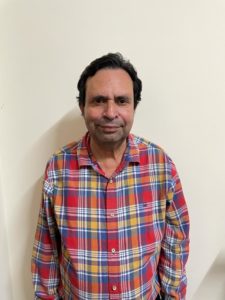Literature and creative writing is an expression of freedom-autonomous and at times libertine, where the writer willy nilly uses the pen to express freely, inviting at times polemics. But that is creative writing, the freeing from the thraldom of restrictions. The creative writer communicates with the self, the deeper self of mystique and psychology- and this is passed on to the reader. The intrinsic desire to communicate invests the writer with the apocalypse of the new, the inventive and if I may call it, the subversive. The writer grapples with subversive elements not to shock but to please.

So does the literary writer distance from reality or create new realities? What is the apocalypse that we are talking of? What is the discovery of self, the hidden revelation of truths? The creative writer unravels and unleashes the fierce dichotomy of what is and, what could be; exploring possibilities of a new world fraught with aspects of existential predicaments, to love or to a religiosity of minds and temperaments.
For within is the world, of the self, indeed multiple worlds, not only esoteric but perceived by the hidden eye. The reader is a receptor, a recipient of such ‘ truths’ the moving finger moves. The pen is a classic example of wielding the power of the written word.
The creative writer whether writing a poem or a story takes a leap into a new world transcending the real into the surreal or the heavenly. Literary critics have espoused the cause of surrender- the writer surrenders after writing, to the discerning reader or the critic.
This brings us to the role of the critic, a pedestrian word, but the critic dissects and anatomises to discover new and new ‘ meanings’ interpretations. But it is only the writer who intuited the truth, embedded in personalised deep labyrinths of the apocalypse. The critic will go on interpreting for academic surveillance, but the creative writer holds the first rights of interpretation- the rainbow of truth.
That is not to say that there will not be dislikes. It will be the venerated critic, who will be the first to pounce upon incongruities, blasphemy, bad writing and what have you.
This brings us to the question of what 75 years of Independence has given us? Is it merely political freedom ( though that can be debated). But what about the waves of creative writing in the myriad Indian languages and in English? The inexorable writer surfaces once again to delve into unfathomable worlds, the Indian diaspora is no exception to this, the urge to create, to write, to sense the sensory, to write the unwritten. This arch of 75 years has been filled by the writer, established and new, young and the old. This freedom is by choice and the Indian democracy has allowed this to happen, given the autonomy to the Indian writer, to freely express a freedom in words, or the artist’s prerogative or licence.
Creative communication is for the masses. Literature cannot and must not be for the classes, contrary to popular belief. Let us set this notion to rest. The writer writes for the world, the educated, the uneducated, the literate, the semi literate and the illiterate! Literature is a popular art form not only populist! In the matrix of what the creative writer deems a necessity is a rainbow tinged truth. And even if one individual has identified himself with it, the writer has been successful in making a foray into the realm of truth.
So this brings us to: the writer, the self and the reader. The writer does not know whose heart she/he has touched. Does not know what all critics are interpreting, castigating or finding fault with. The writer knows only this mystique of writing, more as an intuitive process rather than an intellectual one. For the creative writer intuition is the forte- the grand soliloquy of talking, meditating to one self. In these 75 years we have gained this freedom of expression, our creative writers have relentlessly wielded the enormous pen of creativity and sometimes, this has hung like the proverbial Damocles’ sword, so that even the powerful politician has winced.
I have mentioned the poet or the novelist, but I would like to clarify here that any piece of writing can be creative, a prose essay or a critical review.
Language, literature, and creative communication overlap in inconceivable ways. So in this 75th year of our country’s Independence let us celebrate this glorious certainty, the kaleidoscope of infinite colours that our writers have swathed us with. Long live democracy. Three cheers for it.
Ananya S Guha is a writer and poet, who lives in Shillong.




